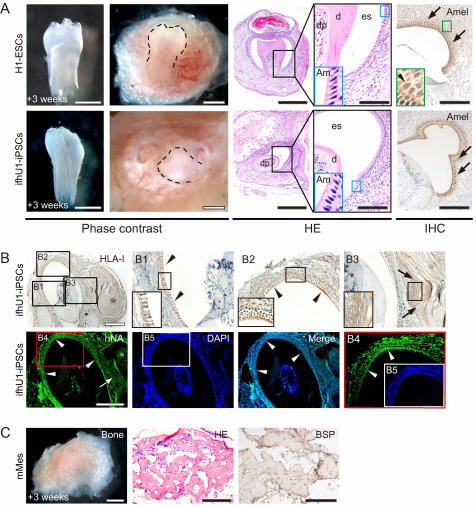The integration-free human urine induced pluripotent stem cells were differentiated to epithelial sheets ( from the Greek meaning 'upon breast', since it was first considered the skin on the breast), one of the four types of tissue (others are nervous, muscle and collective tissue) and after 3 weeks they were able to get tooth-like structures using 8 different lines with a success rate of up to 30%.
Prior to this, iPSC-derived cells had not been used for things like solid organs or tissue such as teeth. They believe their work is one of the best experimental models in organogenesis, which I have written a lot about here and also in Wired. Obviously a future where we can regenerate functional organs or tissues using iPSCs or adult stem cells is a good thing.
Prior research had shown that mouse iPSCs could be differentiated into ameloblasts using dental epithelium but using human iPSCs for human tooth regeneration had not been done. Adult dental stem cells have been successful in tissue engineering research, even creating whole teeth out of isolated cells, but the researchers say iPSCs overcome the limiting factor of adult dental stem cells, such as the absence of consistent sources of odontogenic dental stem cells in adults.
And then there is the urine thing, which is sure to get mainstream 'ick factor' media attention. Though, to be honest, it got me to read the BMC paper too.

Jinglei Cai, Yanmei Zhang, Pengfei Liu, Shubin Chen, Xuan Wu, Yuhua Sun, Ang Li, Ke Huang, Rongping Luo, Lihui Wang, Ying Liu, Ting Zhou, Shicheng Wei, Guangjin Pan and Duanqing Pei, 'Generation of tooth-like structures from integration-free human urine induced pluripotent stem cells', Cell Regeneration 2013, 2:6 doi:10.1186/2045-9769-2-6





Comments